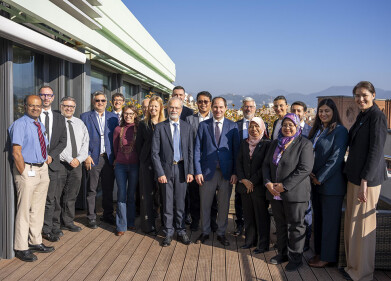Air clean up
Does Air Pollution Put You at Risk of Asthma?
Jun 03 2016
A new study from India has indicated that elevated levels of air pollution might be the single biggest contributing factor to the development of asthma, especially in young children. The survey found that people of all age groups and ethnicities are adversely affected by rising levels of pollution in the country, but that young ones are most at risk.
“A large chunk of the younger generation is suffering from asthma which is a matter of concern,” explained Nipun Goyal, who is the founder of Curofy, the organisation behind the study. “It’s a problem and the first step towards solving it is identification of the cause. We tried to do that by asking doctors about it and the results clearly told us that environment pollution needs to be controlled to save our younger generation.”
A Serious Concern for India
India has been battling with worsening levels of air quality for several years now and recently usurped China as the world’s biggest polluter. In fact, recent figures show that India currently boasts 10 of the world’s 20 most polluted cities.
Although the capital New Delhi managed to improve levels enough to fall from its perch at the top of the pile in 2014, assessment of nitrogen oxides (NOx) over the city has shown that the capital – and the country as a whole – still suffers from a serious problem which could be having a significant effect on the health and lifespan of its inhabitants.
New Study Suggests Link Between Pollution and Asthma
The new study, which was released at the beginning of May to coincide with World Asthma Day, was carried out by Curofy, the biggest community of doctors in the country. It analysed the data from 15 epidemiological studies and found that across India, 7.24% of children are at risk of developing the chronic respiratory disease.
The survey also polled more than 1,000 leading Indian doctors on their expert opinions behind the increase in the contraction of asthma amongst young children in recent years. An overwhelming majority – 82% – of the doctors said they believed that poor air quality was the biggest contributing factor to the asthmatic epidemic.
“More than a million people are suffering from asthma, common among all age groups,” said Anshum Aneja-Arora, a consultant from W-Pratiksha hospital in Gurgaon. “However, the increasing number of asthma cases is due to recent changes in our global environment. Air pollution and particulate dust matters are on the rise.”
Other Factors at Play
11% of the doctors polled said that they thought second-hand smoke inhalation was to blame for the increased contraction of asthma among youngsters, while 7% believed that it was down to mere genetic predisposition.
Despite these alternative explanations, the near-consensus agrees that the degradation of the environment, particularly in relation to rising air pollution levels in the country, is to blame. In order to safeguard the future of India’s children, the government and the populace must work together to find ways to curb emissions and clean up the airwaves.
Closer to home, last year’s Air Quality and Emissions Show (AQE) 2015 focused in particular on ways to reduce air pollution, citing figures from the World Health Organisation (WHO) which attribute one in every eight deaths globally to poor air quality as a cause for immediacy on this topic.
Events
Feb 05 2025 Nantes, France
Feb 16 2025 Kampala, Uganda
Feb 26 2025 Chennai, India
Feb 26 2025 Tulsa, OK, USA
WATERTECH CHINA (GUANGDONG) 2025
Mar 05 2025 Guangdong, China












